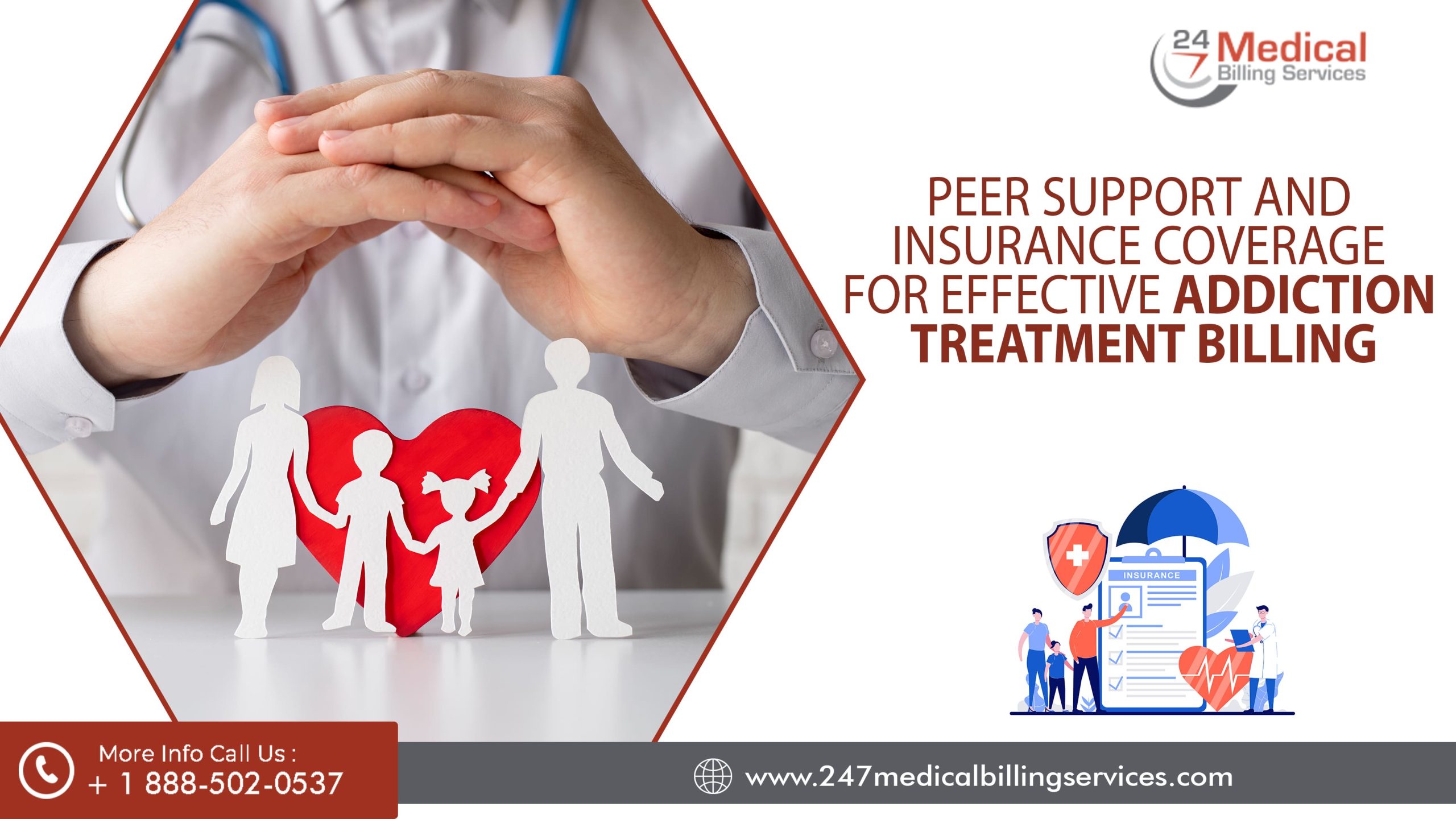
Peer Support and Insurance Coverage for Effective Addiction Treatment Billing
Peer Recovery Support Services (PRSS) offer community-based assistance for individuals facing mental illness or substance use disorder (SUD), leveraging lived experiences to foster sustained recovery. In fact, PRSS fills crucial gaps in traditional treatment and integrate addiction treatment billing-
- Providing empathetic support
- Promoting self-determination and
- Enhancing access to tailored care
Let’s understand the relationship between peer support and insurance coverage for effective addiction treatment billing:
Addiction Treatment Coding Requirements
- Peer Recovery Services accessible without prior authorization for up to 365 hours annually.
- Additional units may be authorized through the PA process.
- CPT code H0038 denotes face-to-face interactions promoting socialization, advocacy, and community integration.
- Services provided by certified individuals aiming at structured activities fostering recovery and life skills development.
Billing Exclusions
- Excludes purely recreational or diversionary activities without therapeutic content.
- Group interventions and activities billable under Skills Training and Development or case management are not eligible for PRSS reimbursement.
- PRSS is not reimbursable for children under 16 or occurring in group settings.
- Emphasizes individualized support and the therapeutic essence of PRSS within billing guidelines.
Medicaid Coverage of Peer Support Services for Adults
- Medicaid expansion under the Affordable Care Act (ACA) aimed to extend coverage to single, childless adults with incomes at or below 133% of federal poverty, potentially reaching millions of uninsured individuals.
- Peer support services, provided by certified peer specialists, encompass assistance in health/wellness, self-monitoring, and overcoming challenges and are increasingly reimbursable under Medicaid in many states.
- Certified peer specialists play a vital role in peer-run organizations, offering advocacy, social support, and empowerment for individuals with mental disorders, contributing to community-building and stigma reduction.
Impact of Medicaid Expansion on Peer-Run Organizations
- Medicaid expansion could significantly impact peer-run organizations due to potential shifts in funding sources and service delivery models.
- Peer-run organizations may face challenges adapting to Medicaid reimbursement requirements, including documentation, billing, and compliance with medical necessity criteria.
- While Medicaid expansion offers opportunities for sustainable funding and broader impact, organizations may grapple with ideological tensions between recovery-oriented, non-medical approaches and Medicaid's focus on medical-model treatment and diagnosis.
Considerations in Medicaid Funding of Peer-Run Organizations
- Medicaid reimbursement for peer support services presents opportunities and challenges for peer-run organizations.
- Managed care models may offer avenues for reimbursement but may necessitate adherence to documentation and diagnostic criteria contrary to the non-medical ethos of peer support.
- Concerns include administrative capacity for billing, compliance with medical necessity criteria, and maintaining organizational values amidst shifting funding landscapes.
- Despite challenges, Medicaid expansion presents prospects for more reliable revenue streams and broader service reach for peer-run organizations, highlighting the importance of balancing financial sustainability with adherence to recovery-oriented principles.
Enhance Reimbursement with 24/7 Medical Billing Services!
Outsourcing addiction treatment billing for peer support services offers hospitals a streamlined and efficient approach to managing medical billing processes. By leveraging specialized third-party billing services, hospitals can tap expertise and access to advanced billing technologies and analytics tools, enhancing transparency and visibility into billing performance. These tools enable hospitals to track and analyze real-time billing data, identify trends, and streamline revenue optimization strategies. By partnering with 24/7 Medical Billing Services, hospitals can benefit from continuous monitoring and improvement of billing processes, ensuring maximum reimbursement for peer support services by adhering to all the rules and guidelines related to insurance coverage.

.png)